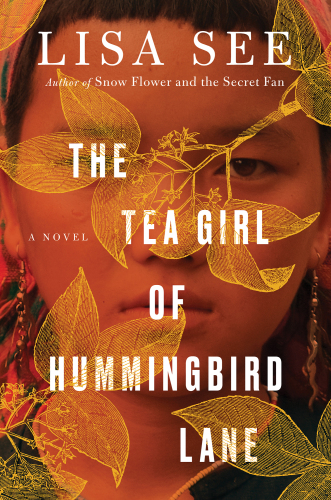
The Tea Girl of Hummingbird Lane
A Novel
کتاب های مرتبط
- اطلاعات
- نقد و بررسی
- دیدگاه کاربران
نقد و بررسی

February 6, 2017
Li-Yan is the youngest daughter of an Ahka family near Nannuo Mountain in China in 1949. She tries to follow Ahka law, the rules set forth by the beliefs of this ethnic minority, but at every turn she seems to find herself doing the opposite: An Ahka girl must obey and learn from her mother, but Li-Yan studies hard at a modern school. Although an Ahka girl should not speak to men, when foreigners arrive from Hong Kong in search of a renowned, aged tea called Pu’er, Li-Yan is the only one who can translate. If an Ahka girl gets pregnant, she must marry the boy, but when Li-Yan gives birth, the father is gone. And, according to Ahka law, a child born outside of marriage must be killed. But Li-Yan cannot bring herself to do it. Instead, she leaves her daughter at the doorstep of an orphanage. While Li-Yan matures into a successful tea master, the daughter, Haley, is adopted into a white American family in Los Angeles, and her existence is revealed in sporadic letters, school reports, and, later, emails. These sections capture both Haley’s desire to fully integrate into her adopted family and her curiosity and heartache about her mother and the only clue she left behind: a tea cake. With vivid and precise details about tea and life in rural China, Li-Yan’s gripping journey to find her daughter comes alive.

June 5, 2017
Miles reads most of the novel in the role of Li-yan, a girl of the Akha, one of China’s 55 ethnic minority groups. She works well as a breathy 10-year-old, but doesn’t seem to mature much in voice or tone as listeners follow Li-yan through her painful teen and beyond as she becomes an accomplished adult. The novel provides excellent detail about the Akhas’ eked-out life in their mountain home, tea culture, gender roles, and folk beliefs in the pre- and post–Deng Xiaoping eras. It then contrasts all this sharply with the life of Li-yan’s abandoned daughter, Haley, and other adopted Chinese girls spoiled by American parents. Several other actors—Alexandra Allwine, Jeremy Bobb, Kimiko Glenn, Joy Osmanski, Emily Walton, Erin Wilhelmi, and Gabra Zackman—lend their voices for these secondary characters. Their performances are all strong, and the variety helps listens stay attuned through a long story. A Scribner hardcover.

January 15, 2017
A woman from the Akha tribe of China's Yunnan province becomes a tea entrepreneur as her daughter grows up in California.See explores another facet of Chinese culture, one that readers may find obscure but intriguing. Li-Yan, the only daughter of a tea-growing family, is a child of the Akha "ethnic minority," as groups in China who are not of the Han majority are known. The Akha are governed by their beliefs in spirits, cleansing rituals, taboos, and the dictates of village shamans. As a teenager, circa 1988, Li-Yan witnesses the death of newborn twins, killed by their father as custom requires, because the Akha consider twin-ship a birth defect: such infants are branded "human rejects." The Akha, inhabiting rugged, inaccessible terrain, have avoided the full brunt of China's experiments in social engineering, including the Great Leap Forward and its resultant famine, the Cultural Revolution, and the One Child policy. Li-Yan's family harvests mostly from wild tea trees as opposed to terraced bushes, and their product is discovered by a connoisseur, Huang, who will alter Li-Yan's destiny. The Akha encourage youthful sexual experimentation, but progeny outside marriage are automatically "rejects." So when Li-Yan discovers she is pregnant by her absent fiance, San-pa, she hides, with her mother's help, in the secret grove of ancient tea trees which is her birthright. After the infant is born, Li-Yan journeys on foot to a town where she gives up her child. Over the next 20 years, we follow Li-Yan as she marries and is widowed, escapes her village, becomes a tea seller, and marries a wealthy recycling mogul, Jin. The couple moves to Pasadena. Intermittent dispatches inform readers that, unbeknownst to Li-Yan, her daughter, named Haley by her adoptive parents, is also in Pasadena. Haley's challenges as a privileged American daughter pale in contrast to Li-Yan's far more elemental concerns. Although representing exhaustive research on See's part, and certainly engrossing, the extensive elucidation of international adoption, tea arcana, and Akha lore threatens to overwhelm the human drama. Still, a riveting exercise in fictional anthropology.
COPYRIGHT(2017) Kirkus Reviews, ALL RIGHTS RESERVED.

October 15, 2016
In a new novel that's classic See, Li-yan is one of the few young women beginning to move beyond the confines of her mountain village. Still, she can't keep the baby she has out of wedlock, instead wrapping her up and leaving her in a nearby city. While Li-yan enters modern life and daughter Haley, rescued and adopted, grows up a happy California girl, each wonders about the other. With a ten-city tour.
Copyright 2016 Library Journal, LLC Used with permission.

























دیدگاه کاربران